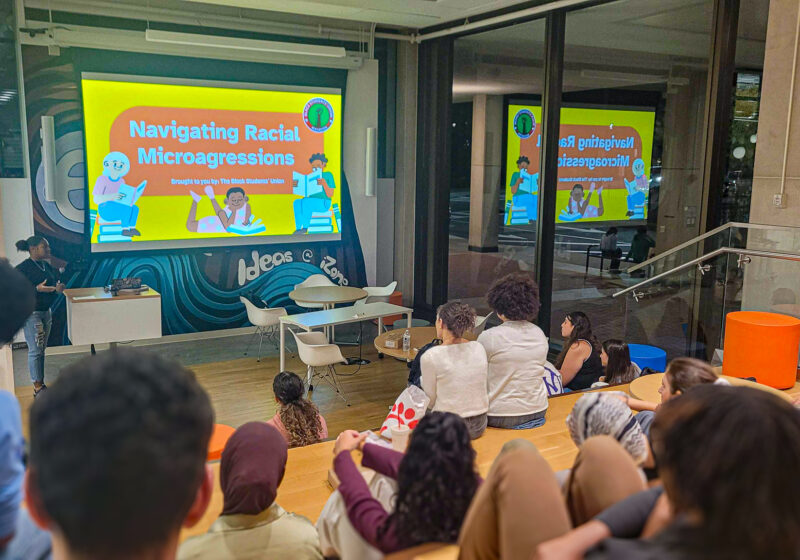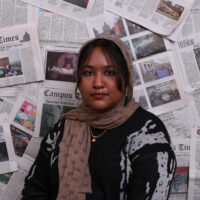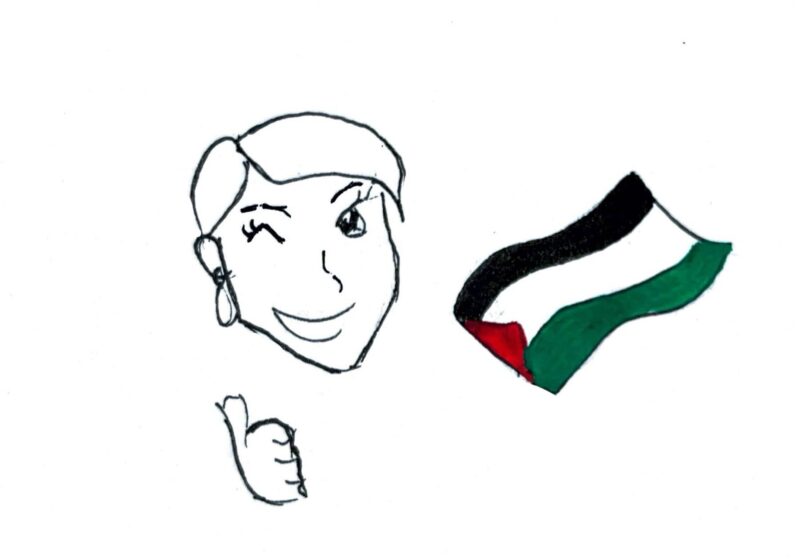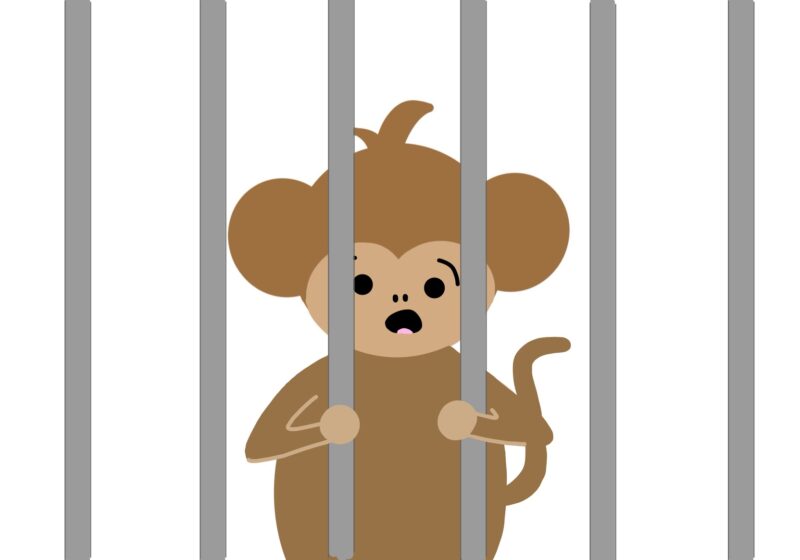Last Thursday evening, Sept. 26, the Student Association for the Development of Arab Cultural Awareness (SADACA) hosted their first Voices Unheard: The Global Dialogue event at Kessler Forum in iZone. This event was in collaboration with many cultural organizations, including the Association for the Development of Interest in the Indian Subcontinent (ADITI), the Black Student Union (BSU), the Pan-African Student Association (PASA), the Spanish and Latino Student Association (SALSA), the University’s Puerto Rican Student Organization (PRSO), and Students for Justice in Palestine (SJP). Each organization had their own segment to highlight a pressing issue occurring in the regions they represent. Their presentation consisted of not just information on the issue, but also how we, as students, could help. Some organizations handed out flyers or displayed QR codes at the end of their presentations that linked to informative websites, fundraisers, and reliable organizations to donate to.
The steps of iZone were packed with people from different organizations. SADACA presented first. Sophomore Rachel Soliman, a SADACA eboard member, talked about events that have been happening in the Middle East and North Africa, addressing the bombings in Lebanon, the conflict in Syria, and the tensions in Tunisia around their election season.
Palestinian junior and president of SADACA Sarah Aljitawi presented a recap on what has been happening so far in Palestine, in the Gaza strip, and in the West Bank.
After that, ADITI talked about the Bangladesh protests that occurred in the summer.
PASA discussed the civil war that has been happening in Sudan since April of 2023, and the war occurring in the Democratic Republic of the Congo.
Next, PRSO talked about the flooding in Puerto Rico and the long lasting effects of Hurricane Maria. They mentioned the song “Una Velita,” which was released on Sept. 19 by Bad Bunny about the poor political response to the disaster.
SALSA presented the issue on voter fraud in Venezuela in the re-election of president Nicolás Maduro.
Palestinian sophomore Saafa Tahboub thought “the event was a great way to showcase the struggles and events currently happening around our world. There is so much going on and this event held space for each one in a meaningful and informative way.”
Pulling the event to a close, BSU discussed microaggressions, how to identify them, and how to respond to them. Afterwards, attendees shared different microaggressions that they had encountered, whether within the school environment or in public. Just a few examples of the microaggressions that were mentioned were, “Where are you really from?”, “You speak pretty good English,” and “You look pretty for a [person from this particular culture/country].”
Regarding BSU’s “Navigating Racial Microaggressions” presentation, Tahboub said, “I think oftentimes we become overwhelmed with the ‘bigger’ events happening around us and in the world, we forget about the ‘smaller’ things that lead to sometimes even bigger impacts.” She especially enjoyed the presentation on microaggressions because it’s “something that happens on a daily basis but is very easy to forget about.”
Overall, the event was a success, with an encouraging turn out. Within those few hours, the audience learned about different global issues occurring within cultures and regions other than their own.
Junior Soliman, a key contributor to setting up the event, said, “I was really happy with the turnout […] I’m really glad that […] people from other cultural orgs came and heard about what’s going on.”
“I’m Egyptian, I know what’s going on in Palestine, I know what’s going on in Egypt, I know a lot about what’s going on in Lebanon […] honestly I’m not well informed on what’s going on in Congo or Sudan or Puerto Rico […] I think it’s important to hear about these events from people who have personal ties to it. I think it also helps create the cultural spirit each of our cultural organizations try to foster, and remind us that we’re all in this together.” It was “a great opportunity for people to learn more,” she added.
SADACA’s Voices Unheard event sent a unifying message to everyone there, from all countries and cultures. It was a refreshing discussion that took us away from our individual stresses in life and provided the opportunity to look at the world from a bigger perspective, reminding us of the vast tapestry of identities, experiences, and challenges that connect us.
“I learned a lot about the commonalities of one people’s struggle with another,” Tahboub said. “One person’s oppression is everyone’s responsibility because it affects us all.”





